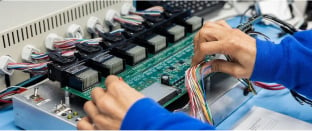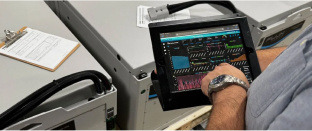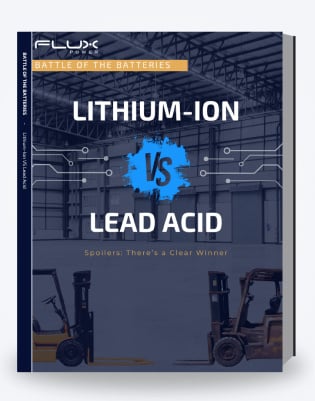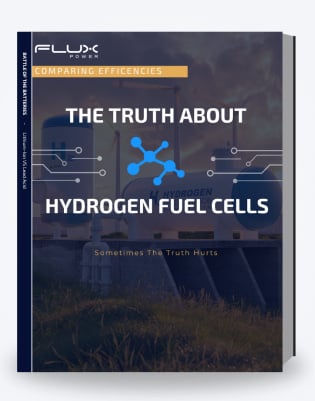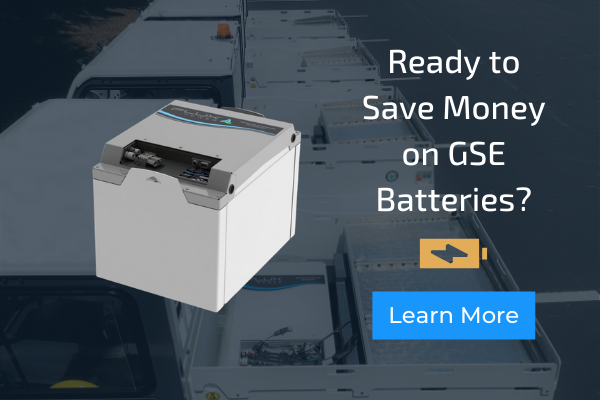What Cold Temperatures Means for Your GSE Fleet
Freezing cold temperatures can wreak havoc on your GSE fleet. As temperatures drop, the viscosity of fluids thickens, and both lead acid batteries and internal combustion engines become less efficient.
Airport GSE maintenance becomes complicated in colder temperatures. When temperatures dip, it can be unsafe for mechanics and repair technicians to work outside. Working inside can also be a concern with internal combustion due to the toxic fumes this power source provides.
The key to successful airport operations is to work on weather-proofing your GSE fleet to reduce the chance of mechanical failures.
Internal Combustion Ground Handling in Cold Weather
Internal combustion (IC) GSE has long been the standard. However, this technology has always struggled to keep up with cargo operations in airports during the months of harsh cold weather. Internal combustion engines have many more moving parts than their electric counterparts.
As temperatures dip, the fluids that lubricate thicken. When this happens, breakdowns become more of a frequent occurrence.
In colder weather, following internal combustion GSE maintenance procedures are crucial to ensuring your airport operations stay on schedule. Changing the oil in all your ground support equipment is one of those procedures. In lower temperatures, there is specific cold temperature weight oil designed for IC engines to help them function better. One of the downsides is that most manufacturers have model-specific oil replacements for their equipment. Maintaining inventory of multiple oil types for different equipment and temperatures can increase your expenses.
Lead Acid Ground Handling in Cold Weather
Lead acid batteries are commonly used among aircraft ground support equipment. However, lead acid batteries are highly susceptible to extreme temperatures due to their narrow operating temperature range. As temperatures decrease, lead acid battery performance starts to drop dramatically. You will get less run time and need to charge more frequently, quickly leading to short-cycling, which is one of the worst things you can do to your lead acid batteries.
A lead acid battery can freeze up depending on its state of charge. When temperatures are below freezing and lead acid batteries are at a low state of charge, the electrolyte solutions are more water-like and can freeze faster than when in their full state of charge.
If you are trying to fully charge your lead acid batteries, cold temperatures can affect your charge readings. There is a chance that when you are charging your lead acid battery, you can be taking the battery off the charger too soon, which can shorten the battery’s lifespan.
As a result, cold weather can impede your operational efficiency, void battery warranties, and lead to shorter lifespans (which means replacing your lead acid batteries more frequently).
Lithium-Ion Ground Handling in Freezing Temperatures
Compared to lead acid batteries and internal combustion engines, lithium-ion GSE battery packs are the most resilient and efficient choice of power during the freezing cold months. Lithium-ion has advanced integrated technology that allows your fleet to thrive in cold temperatures.
Battery management systems (BMS) and telematics units can monitor your battery temperatures and alert you if there is a concern.
The ideal operating temperature for lead acid batteries is 77˚F. A rule of thumb says that the capacity of lead acid batteries decreases 10% for every ten-degree drop below the ideal operating temperature. On the other hand, lithium-ion battery packs can operate in temperatures from -4˚F to 131˚F while keeping the same power throughout a shift of tugging baggage around the airport.
You even have the option to integrate a lithium-ion battery heater to keep your battery within a safe operating temperature throughout the harshest of winter weather. If there is an integrated heater within the battery, the BMS will ensure the battery stays at the right temperature to work efficiently even at cold airports.
Lithium-ion GSE fleets allow your crews to get the job done without a drop in power, unlike lead acid GSE. This way, you can keep your crew safe and warm because they won’t need to stay outside as long.
Let Lithium-Ion Batteries Power Your GSE Effortlessly
Freezing temperatures can have a negative impact on ground handling fleets and airport operations. Dealing with sub-zero temperatures, weather can take a toll on your equipment and operators. Internal combustion ground handling equipment is more prone to breakdowns during the cold months. An IC engine just does not perform as well as a lithium-ion battery pack, and operators will not be as efficient in doing tasks due to equipment downtime.
Lead acid batteries do not perform well in extreme temperature environments either. The cold weather decreases performance, leading to shorter run times, longer charge times, and a shorter lifespan.
Lithium-ion technology is the best battery for cold weather because it is the only power source that is truly capable of keeping the same power an entire shift without dropping in productivity. Lithium-ion battery chemistry and the integrated BMS technology are capable of monitoring battery temperature and making adjustments to ensure the ground support equipment will keep on thriving in cold weather operations.

